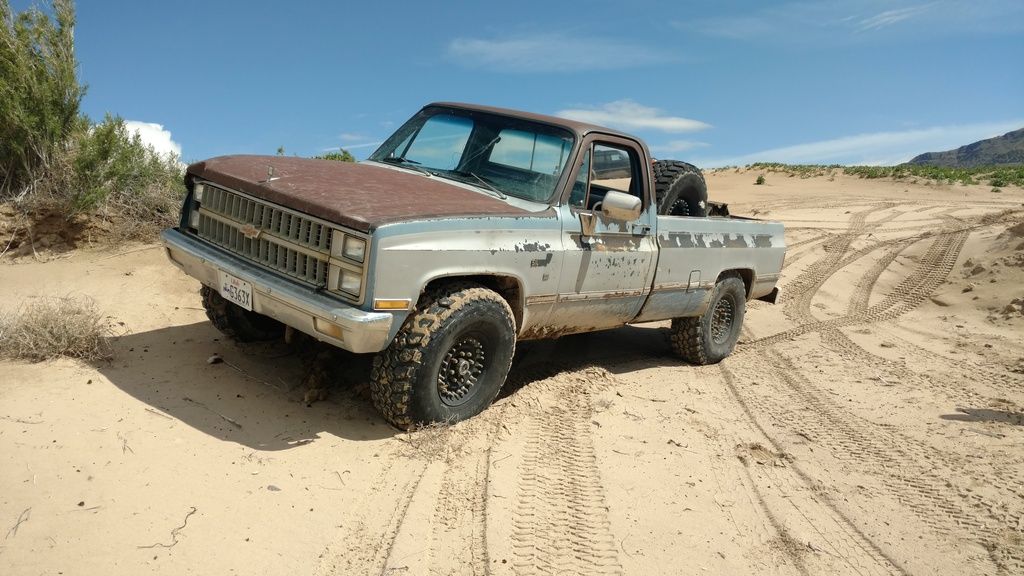javajoe79
Fabricator
super heavy, but nice and cheap
i use the PVC inserts to help with the weight.

What about the inserts makes them lighter?
I'm considering these for my NPR build. Is there a center for 8 x 170?
Last edited:
Get your tickets to THE BIG THING 2026!
super heavy, but nice and cheap
i use the PVC inserts to help with the weight.

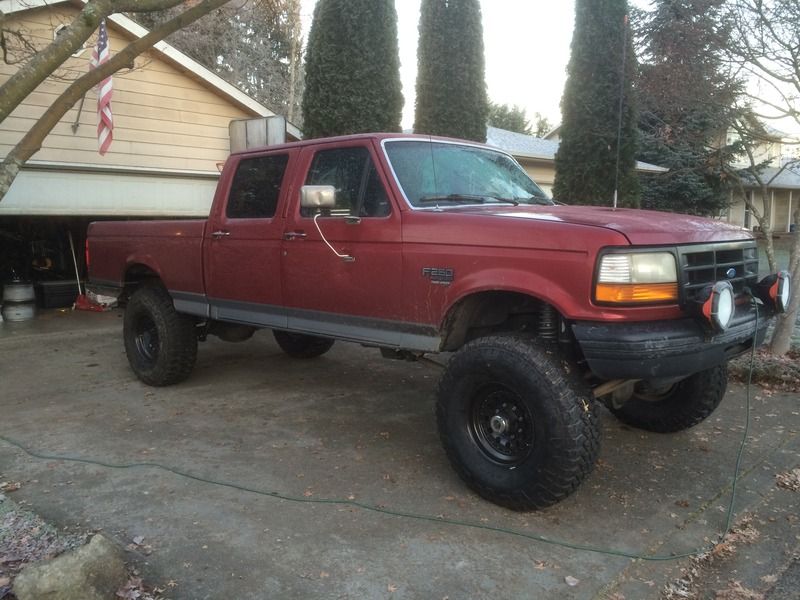
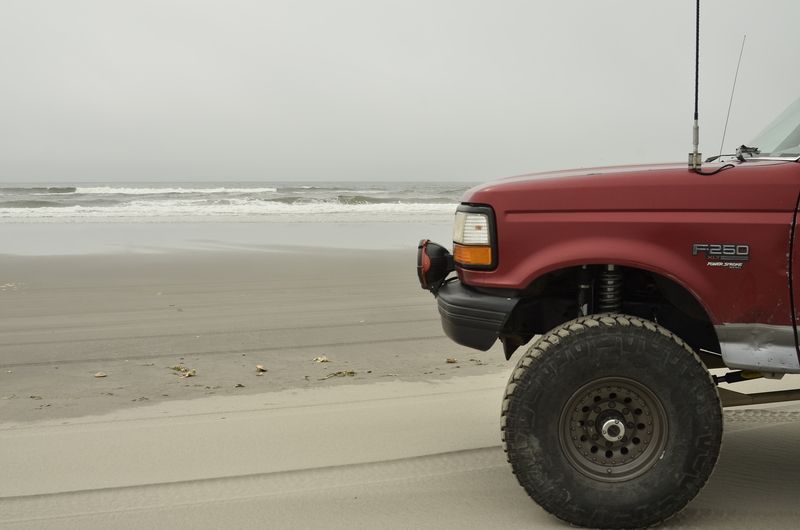
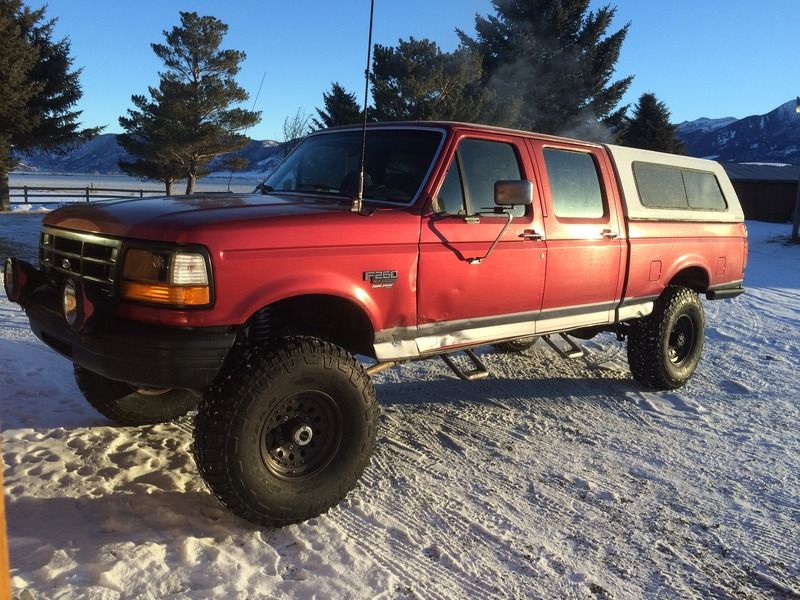
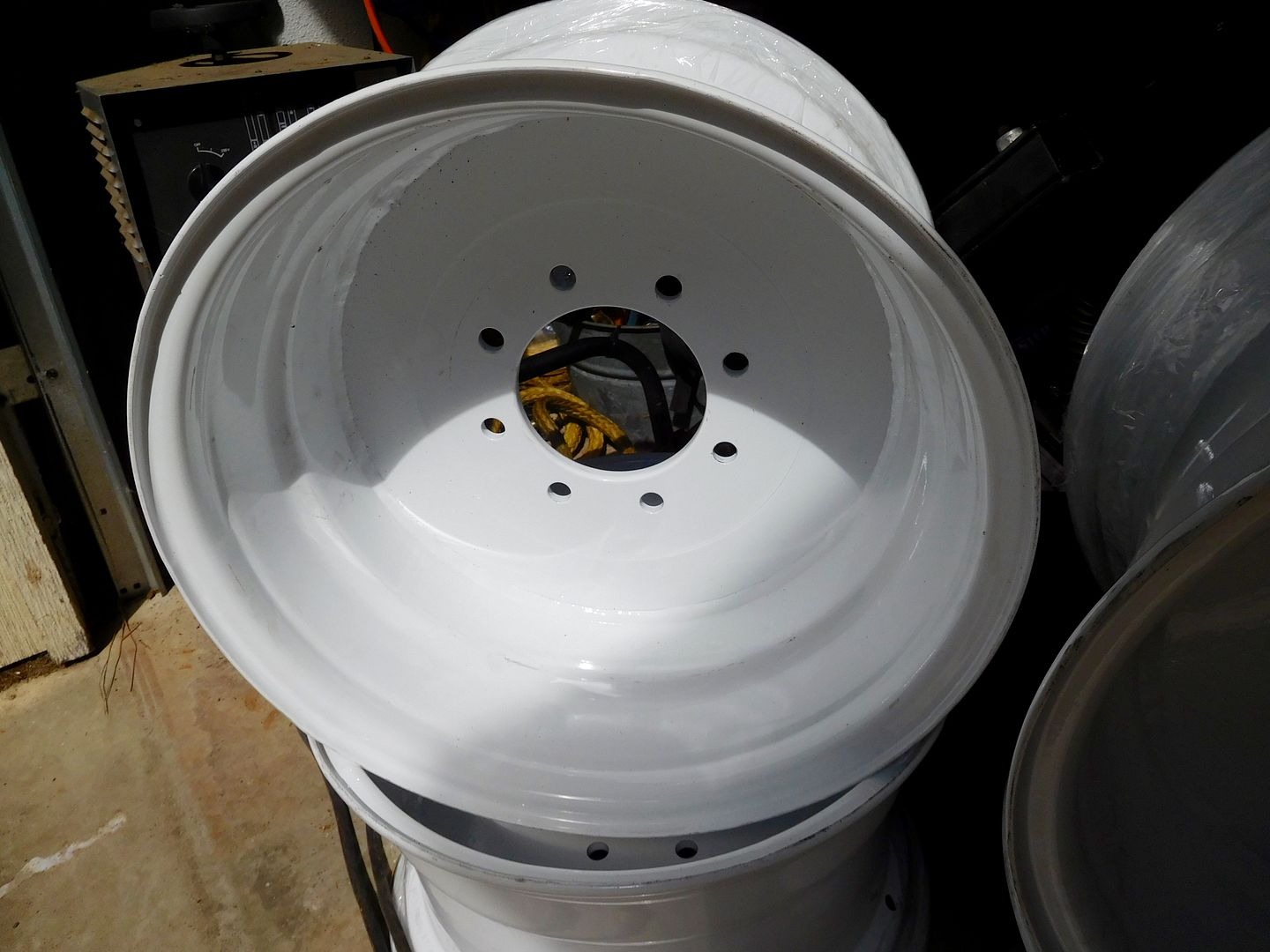
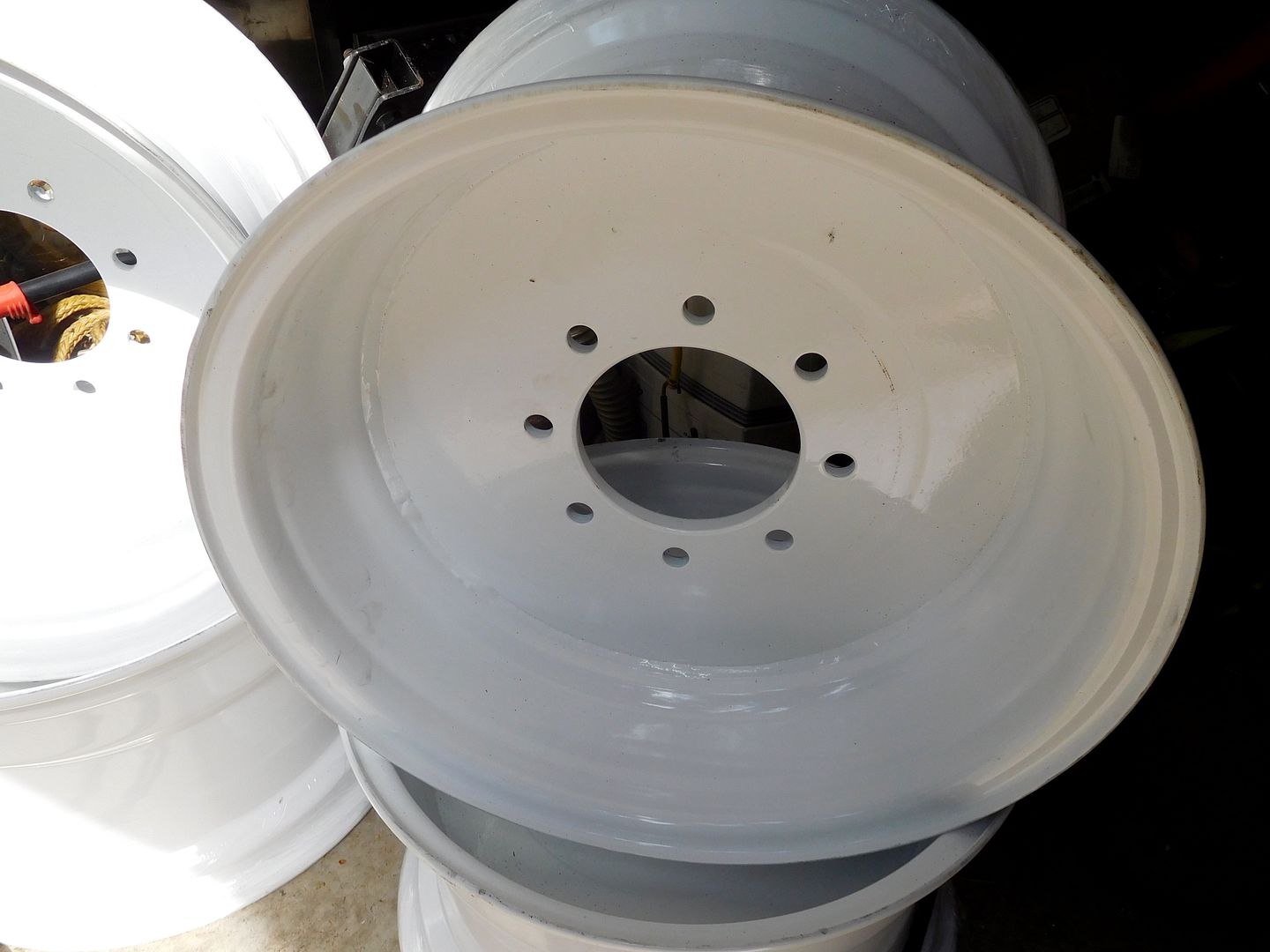
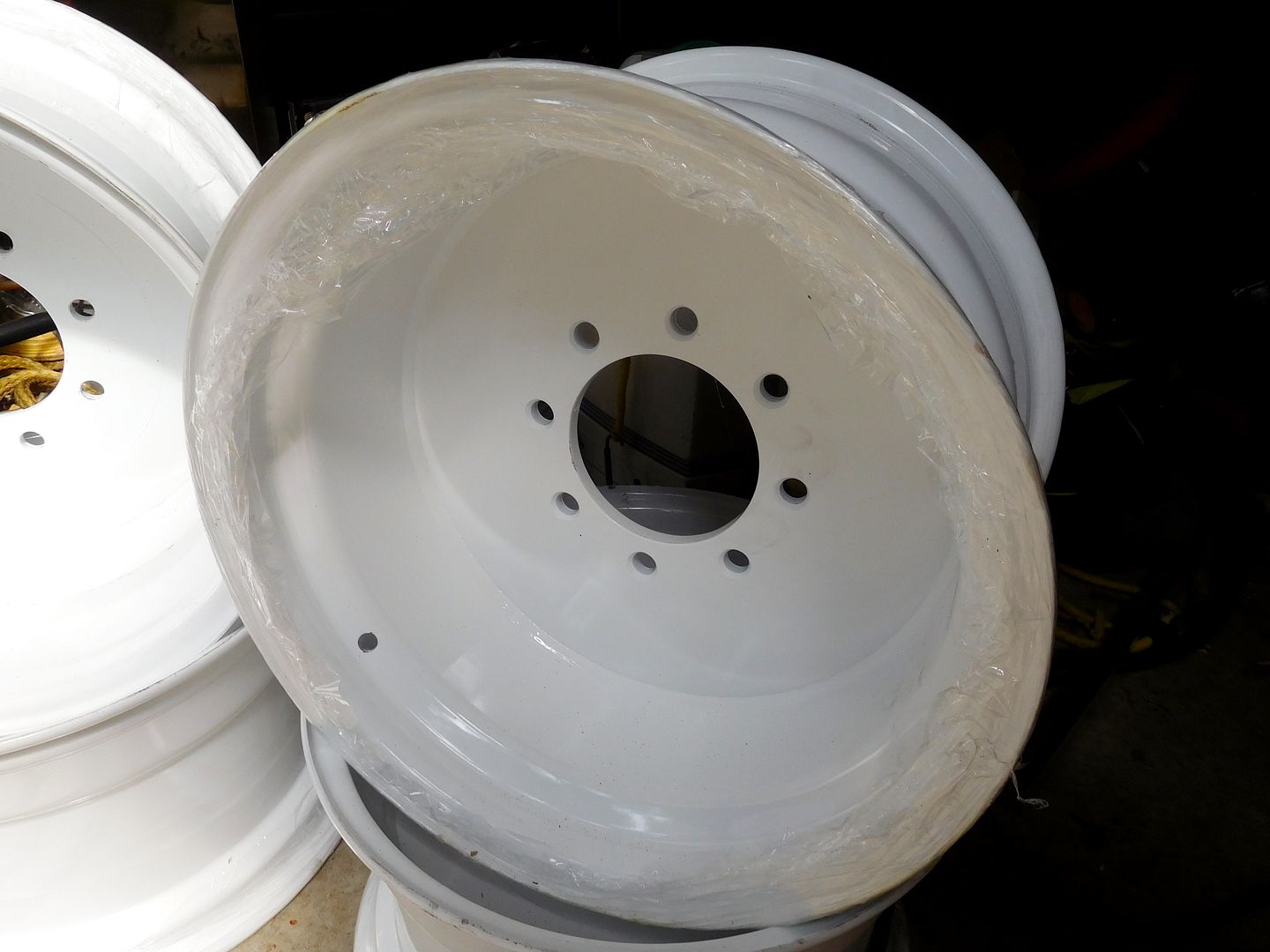
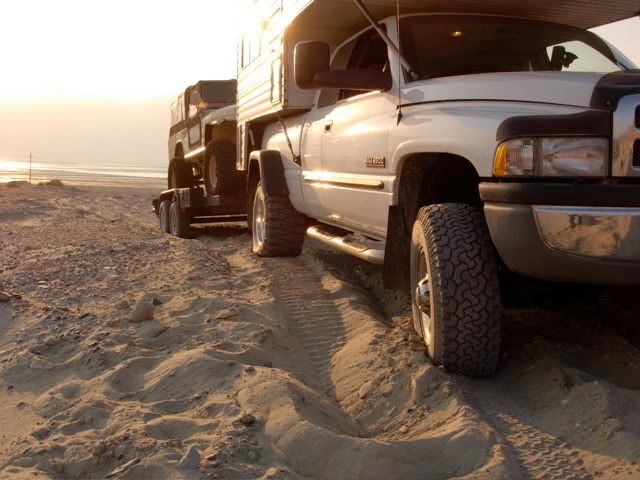
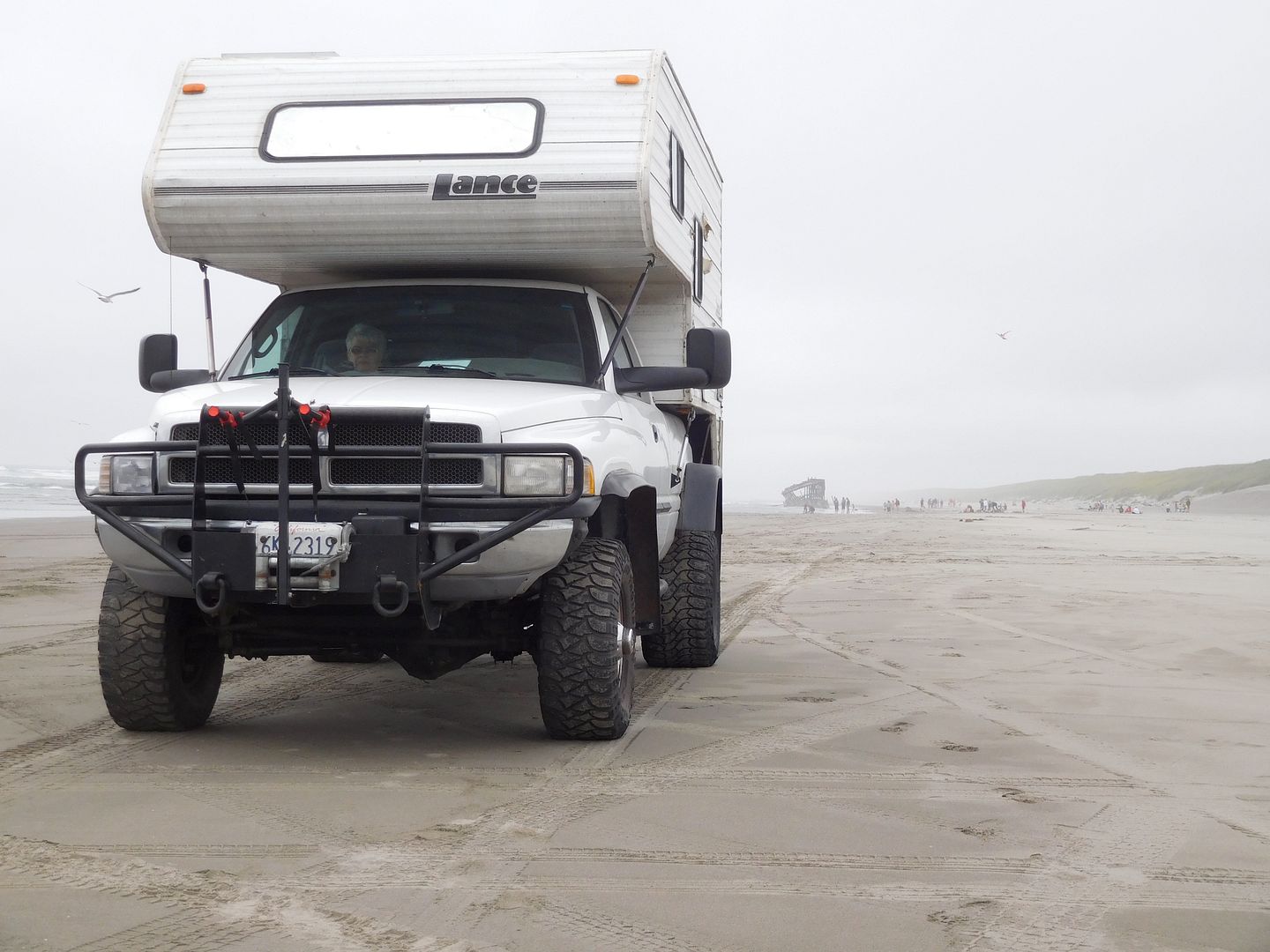
What about the inserts makes them lighter?
I'm considering these for my NPR build. Is there a center for 8 x 170?
sorry just saw this. the pvc inserts are lighter then the huge rubber runflats, i want to say around 20lbs lighter per wheel
Good info here I suppose but don't the internal beadlocks on the hummer wheels provide enough protection when airing down?I went through the surplus Mil Spec cheap tire/wheel feeding frenzy a couple years ago. After meeting a lot of dead ends as to my particular specs, i continued to do some research on wheels and tires. After talking to a lot of people, and reading a lot of user reviews, I decided to stick to a non-".5" wheel and had Stockton Wheel make up some 'Power Wagon' wheels (1/2 inch solid steel plate centers custom welded into DOT approved rims. front: 16x10's with a 6.25 inch back spacing. rear: 16x10 with a 4.5" B.S.). The 6.25 inch BS, back side of the front wheel:
The 4.5 inch BS, back side of the rear wheel:
The front side of the 4.5 inch BS wheel with obvious lug-centric design:
These have an astronomical weight rating. Why would I go there? Basically, I want my 10K pound truck camper to survive on the dunes with the pressure down to about 20 to 24 pounds of air, and with two different off sets, front and rear. That may seem like a high minimum to 'jeepers', but remember i took the pressure down to 5 pounds, and lower at times on my old CJ-8 rock crawler....without bead locks, but with wheels that HAD a safety bead. The scrub radius on the front axle of my Dodge limits the wheels I can use. I tried 16x10 wheels with a 4.5 inch B.S. (the most common of aftermarket wheels) with a 33x13.50 75 R16 tire, and they would not clear the rear of the fender opening. Why? Dumb engineering, yes, but the Scrub radius. Think of your front wheels on a hinge, swinging to and fro on the king pins (or, if unlucky enough to have a Dodge, the ball joints). If the tire/wheel has a small (4.5inch) B.S., the wheel sticks out farther and the swing is in a wider arc, to and fro which may connect with the Dodge II Gen fender opening. And, that's what happened. So after some measuring, I think the 10 inch wheel with the factory 6.25 inch B.S. will clear. Also, remember that wide wheels with little backspacing keeps the wheel way out there and puts a LOT of leverage on the wheel bearings, causing a shortened bearing life, as well as a wider scrub radius; a woe with steering. This is particularly noxious if you still have the same, short-life prone, unit bearing that the bean counters enticed Chrysler Corp. to use. The other issue for me was wheel capacity. My 12 inch wide wheels are rated at 3600 pounds: In the ball park but not strong enough for extreme truck camping, XTC. So as a wrap-up, I needed tires with a lot of sidewall to float on when deflated for sand, and a tire and wheel that could carry a LOT of weight: Two factors basically at odds with each other. Let's talk about that wheel bead, or lack of. Here on a dune, i lowered the pressure to 22 front, and 18 pounds, rear. A wider wheel and tire does not need as much pressure on sand. My old friend, ******** Cepek introduced me to 'Floatation' in the late 1960's, out his 25 foot wide store front in So. Cal.. He's gone, but his instructive legacy lives on.
A wheel with a safety bead, like a 16, 17, 18, or 20 inch wheel has that little lip that keeps the tire bead from easily separating from the wheel at low pressure. A ".5" wheel ( 16.5, 19.5, 22.5) has a cone shaped cross section that looks like a flower vase with NO such safety bead. Just an angled surface on which the tire pressure holds it to the rim. It requires high air pressure alone to keep the tire bead pressed up against the wheel. The only ".5" wheel/tire combo that is recommended for dropping the air pressure down are the mil. spec. and Staun bead lock wheels. Why the military chose a ".5" wheel for combat vehicles is beyond me. This is the reason non-bead lock ".5" wheels are not recommended for sand or deflating of any kind.
My current 'Expedition worthy' build rig is a 2001.5 Ram 2500 HO Cummins with stuff and a small, hard side Lance Camper. Currently I run 305x75R16 on 8 inch wheels on the front, and 375x55R16 super singles on 12 inch wide wheels on the rear. They are + or - 33.1 inches in diameter and in need of replacing.
The super singles have been discontinued, so I have in mind another tire: Cooper STT Pro LT315/75R16; load: 3860 pounds; recommended for an 8-11 inch wheel; 34.53 inch diameter. I've done a little trimming so these will fit in my 2nd GENeration Dodge front wheel wells (I also have a 3" "loaded" lift all around).
I know folks have had a good experience with Mil. Spec. bead lock, ".5" wheels and tires, but they did not meet my expectations.
regards, as always, jefe
Ok gotcha. With the PVC run flat inserts, you retain the internal beadlock function correct?
I run the 37"s on my 82 k20, it's the offroad toy. Traction has been great so far on rocks, sand, and some mud. I run 25-30psi on the road and down to 12psi offroad. Had 1 tire throw a chunk very quickly on the pavement (bad tire) that was replaced no questions asked. Holds air so it became my spare for now. 4 of the tires have balanced well, one is way off with balance. Still have the runflats installed and running the 24 bolt wheels.
